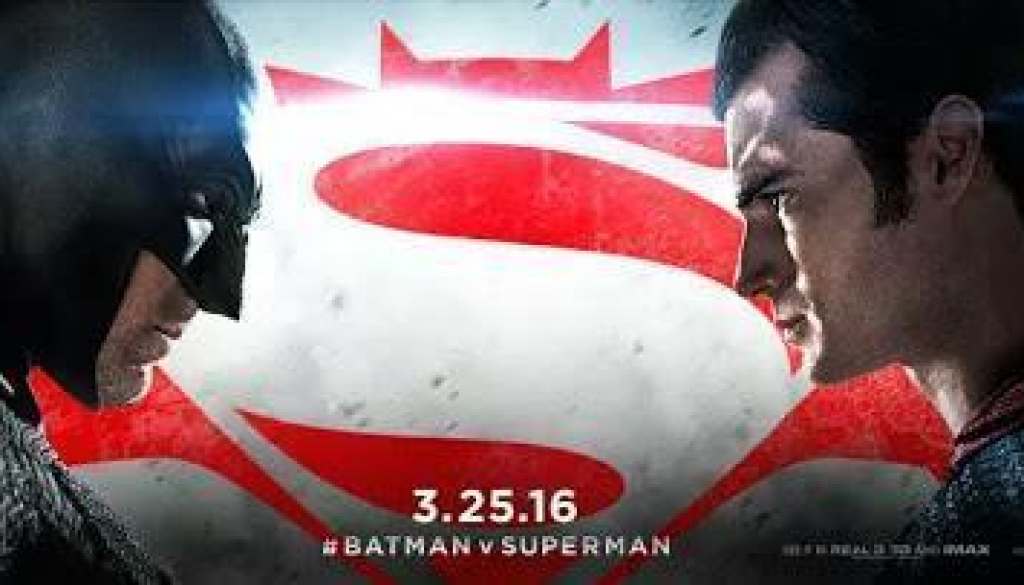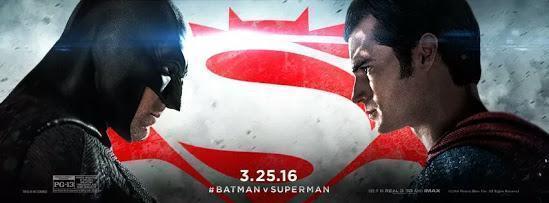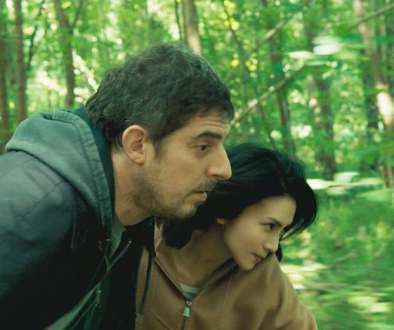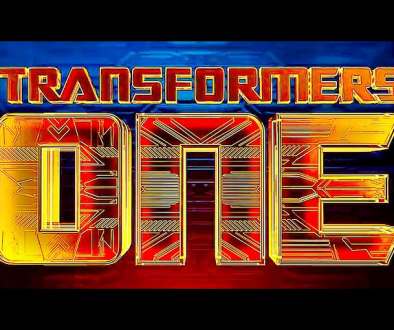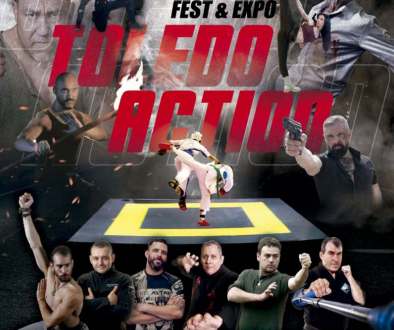Batman V Superman: Dawn Of Justice opened wide to much anticipation this past Friday, heralded by a backlash of negative word-of-mouth that continues still. The consensus: it’s not a total loss, but it’s not the big cinematic triumph we all hoped for. And maybe, it can be argued, that’s our fault. Indeed, we went in with expectations the scope of such that would make even a tall Bonaparte blush. Well, the same can be said about Snyder and Co.; that their aesthetic failure to hit the mark and resonate with audiences and critics alike was predicated on their overzealousness in approach.
Sad Ben Affleck has since gone viral, and many of us are in tern are already practicing the cosplay version of it.
 |
| “I’m just here so I don’t get fined.” |
Many die-hard fans of the source material, the easiest of them to please, they’ll praise anything with their favorite characters in it. But if not the average moviegoer than the astute cinophile in the disguise of one will want for something more than pretty spectacle. We got that with the trailers, they’ll say. Give us substance in exchange for our dollars. Chris Terrio’s script shows signs of an effort in that regard, as well as Snyder’s epic direction style and Larry Fong’s beautiful cinematography to compliment it. They brought out much substance in the visual presentation, texturing the film with a look and feel worth every penny of the IMAX inflation. Alas, the sum result of their efforts can be described as having been, narratively, in vain – the painful variety.
So let’s face it, the cat’s out of the bag, so to speak. And having entered the game as a hugely vocal supporter, it is regrettable to be reporting at this juncture from the other side of the proverbial fence.
The film opens with a flashback of Bruce Wayne’s parents being murdered. A familiar scene, but one punctuated by Snyder’s signature for slow motion shots and evocative imagery. He gets that down packed in the way that M. Night Shyamalan is always strong with an undercurrent of relevant themes, though clumsily dramatized (more on that later). We segue from there into picking up where Man Of Steel left off, giving us a recap of the Superman/Zod fight from the perspective of the humans caught in the fray and poetically dying down below (set to music, of course, because no one dies without music!). There is an odd preponderance on the death and destruction. Odd not because of its narrative necessity (after all, we’ve been clamoring for that to be addressed since 2013), but because of how it – perhaps accidentally — cast a note emphasis on a nihilistic Superman’s excessively morose and costly trek along the warrior’s path to self discovery. I should perhaps say trampling upon the warrior’s path, as the iconic hero’s own ethos is lost in the newfangled expression of it. This reminds of the retcon of Peter Parker’s definitive ethos, again accidentally, in Raimi’s Spider-Man 3.
 |
| “Great, do I die again in this?” |
In that film, we revisited the death of Peter’s Uncle Ben. In changing the random circumstances of that event, Peter was robbed of the existential truth that his mission is one greater than his own personal concerns. It was failing to do the right thing when the opportunity presented itself that ultimately resulted in Uncle Ben getting shot, not an independent mistake made by a repentant criminal. Similarly, the preponderance on Superman’s indifference to the destruction and death wrought by his sophomore battle with the seasoned Kryptonian military elite was not just a rookie’s burden but, as seen in the new film, a worryingly consistent pattern. He achieves even more feats of death-by-indifference this time around. Only, it’s in a darker setting and juxtaposed against what is presumably, and essentially, a rivalry in death tolls-by-brutality on the part of Gotham’s own.
Yes. You read that correctly. The new Batman is Frank Castle with a more impressive weapons budget. And while that may very well sound cool on paper, a murderous Batman is a betrayal of the fundamental mythology. In this movie, the dude has no problem outright murdering people in near every action set piece. Why, his plan to “fight” Superman is an assassination plot. Not “basically” or “kind of” either, and certainly not in any cutesy sense.
At this point I feel a little like General Zod in the first film, betrayed by the filmmakers and determined to find them. To spit-scream in their faces that I will reclaim what they have taken from us!
 |
| Mutha… |
Speaking of the Man Of Steel, I rewatched it after BvS, to investigate foreshadowing for the poor thematic trajectory of its sequel. I was reminded of The Matrix experience by this, the frantic rewatch endeavor after ‘Revolutions to retain delight for the mythology, to attempt configuring in a mad scramble what the hell went wrong.
Well, I cracked the case. In the ideological battle between Day versus Night, God versus Man, the Super versus the Bat, the Super ultimately won – but not really.
To examine this point, it requires a look back at Nolan’s series. After the franchise murdering debacle of Batman & Robin, the mythology fell into obscurity. When Nolan came onto the scene with a proposed Batman trilogy, he sought to re-establish Batman as a serious film character with a mythos that could be approached philosophically and in the vehicle of crime drama – a decidedly more intellectually esteemed genre of film than the superhero one, that, anyway, had not quite yet gained its footing in the marketplace.
To do this successfully, Nolan had to strip the mythology of its pulpish veneers and examine its thematic underpinnings. The Batman persona as a damaged man’s addiction, and the Batman symbol as archetypically representative of the resilience of the human spirit (“Why do we fall?”) as well as a philosophy of making the world a better place –populated one at a time by better people – by way of example. It’s a definitive martial arts principle, found anywhere from in the writings of Funakoshi, founder of Karate-Do, to Tsunetomo’s Hagakure and even Sun Tzu’s Art Of War. An appropriate detail for the subtext of a Batman story.
Two movies later, several non-fiction books and research papers by respected intellectuals, psychologists, philosophers, Batman has prevailed again in the marketplace and collective unconscious as, yes, a dark figure, but an inspiring one defined by a few simple traits: He hates guns, he is opposed to murder (the concept of vengeance exposed for its fallacies), and his resilience is uncanny.
Nolan’s vision proved successful, and got DC/Warner Bros. back on the radar for doing big business in movies. Marvel, at this point, had established a shared universe for their brand. Fox, for better or worse, had achieved the same with X-Men. Now, with the Nolan series wrapped up, WB/DC was poised with a challenge: Re-launch Superman for a modern audience and kick-start their own shared universe. They rode the coattails of Dark Knight success all the way to the box office with their new introduction to Superman, the Man Of Steel. Their film divided the audience, but made enough money and established enough interest to justify moving forward with the DCCU that their previous attempt, luckily, did not ruin (Yes, I’m talking about Green Lantern).
 |
| “Never Forget, 2011” |
But within the success lies the problem: The presentation of Superman. Many complained that in Man Of Steel, they followed the Nolan model too closely in making Superman a bit of an ubermensch of despair. This was justified however by the fact that they wanted to present Clark Kent’s predicament in the world as more realistic, in the sense that, of course, in the formative years such a person lost to a basic understanding of his own unique heritage would be “dark”, frustrated, and questing. But by the time he is floating confidently adrift at film’s end, its reasonable to expect some uplift (and more color) by the time the curtain opens on the follow up. We didn’t get that.
Instead we got a continuation of the darkness arc. But not even the Batman darkness arc the title suggests would overshadow ol’ Kal. The arc in question is the muddling of the ethos mentioned earlier. In Man Of Steel, Superman gets a pass for not essentially being Superman yet. After all, it was an origin film. However, In BvS, he IS Superman. He is Clark Kent working at the Daily Planet. He is the buff investigative reporter no one can recognize anymore once his glasses are on. He is, in a word, the guy we’ve a palette for Hope from.
We were left dehydrated.
We got more of the indifferent Superman, otherwise bored unless someone close to him is threatened. At no point was he more excited to spring swaggering into action than early on in a near mock rescuing of Lois. And for better or worse, this is the theme that prevailed. An ideological tug of war for prominence goes to New 52 Superman, a diluted Hope model dragging in not balance from a gritty Batman but rather a skewed Batman made more extreme in order to fit in.
I was excited that we would finally see Batman throw down the way someone with his skillset would in a live action setting, excited that the maestro of fisticuffs action, Zack Snyder, would be at the helm. But I wasn’t too keen on the utter –and punctuated!- devalue of human life.
Neither, it would seem, was Ben Affleck…
Snyder swooped in like a flag-bearing champion. He described Superman as the “Rosetta Stone of all superheroes”, convinced us of his keen grasping of superheroes as modern mythology and set out to build a world where Gods lived among us. This brings us back to Shyamalan, who also is quite vocal and loquacious – skilled at selling you on his enthusiasm. What the two filmmakers have in common beyond their deep interest in the function of mythology in human behavior is an ego bloated enough that it gets in their own way.
Perhaps Ben Affleck will have better luck when its time to do his Batman solo film. He is, essentially, the new Hugh Jackman; lit on fire by his enthusiasm for the character that, like the parable of the little engine, will keep on keeping on until he can get it right.
Snyder, conversely, is perhaps the real Lex Luthor. Tricked us so strategically into believing in him that, now that he’s president, there’s nothing we can do about it but hope he doesn’t make things worse…
 Khalil Barnett is a martial arts practioner living in Florida, and is also a filmmaker, writer, producer and actor starring in the independent action drama series, The Way, and co-creator of upcoming indie action short, Santos. Visit the official Facebook page for more info.
Khalil Barnett is a martial arts practioner living in Florida, and is also a filmmaker, writer, producer and actor starring in the independent action drama series, The Way, and co-creator of upcoming indie action short, Santos. Visit the official Facebook page for more info.
Native New Yorker. Been writing for a long time now, and I enjoy what I do. Be nice to me!
Like this:
Like Loading...


Khalil Barnett is a martial arts practioner living in Florida, and is also a filmmaker, writer, producer and actor starring in the independent action drama series, The Way, and co-creator of upcoming indie action short, Santos. Visit the official Facebook page for more info.

